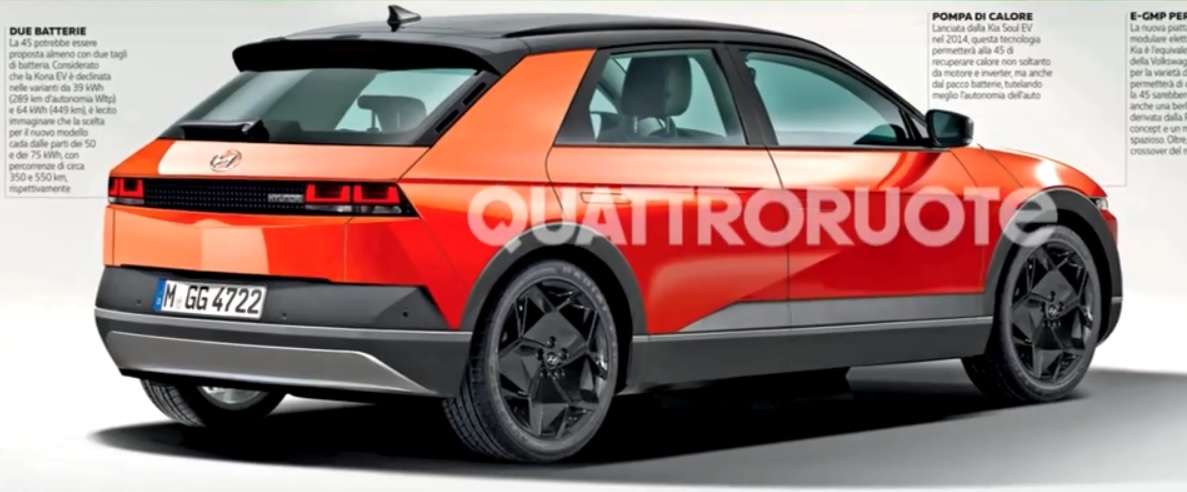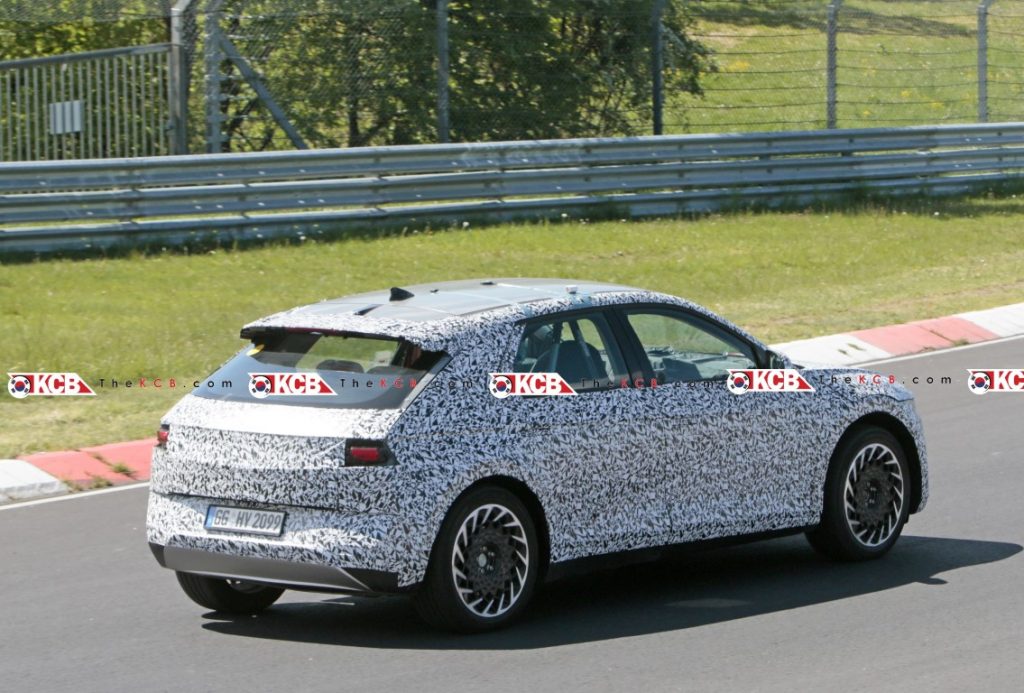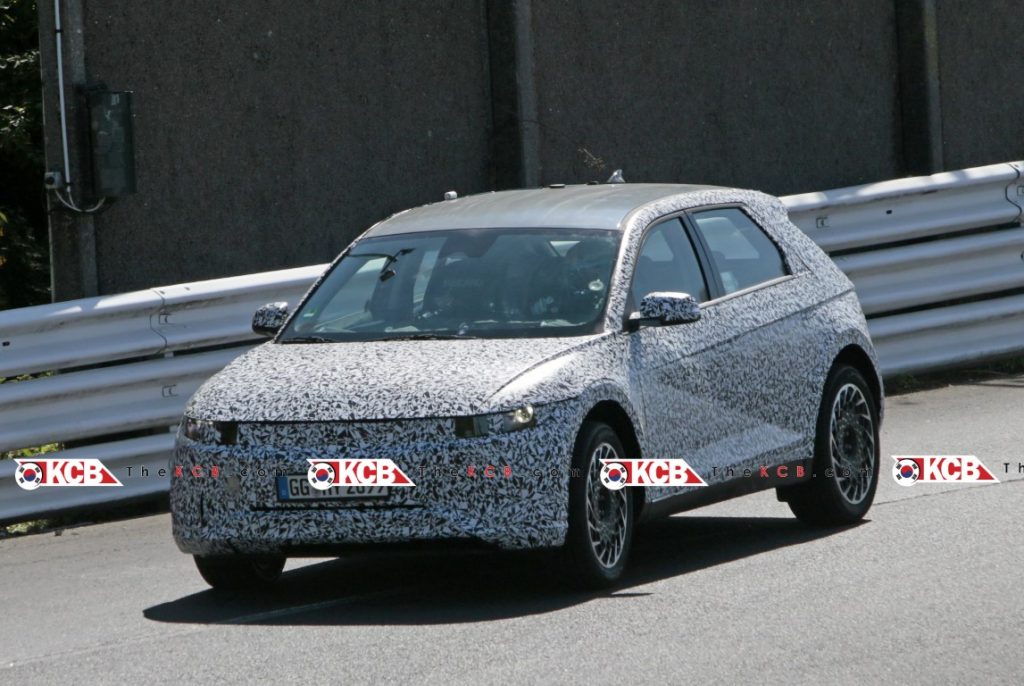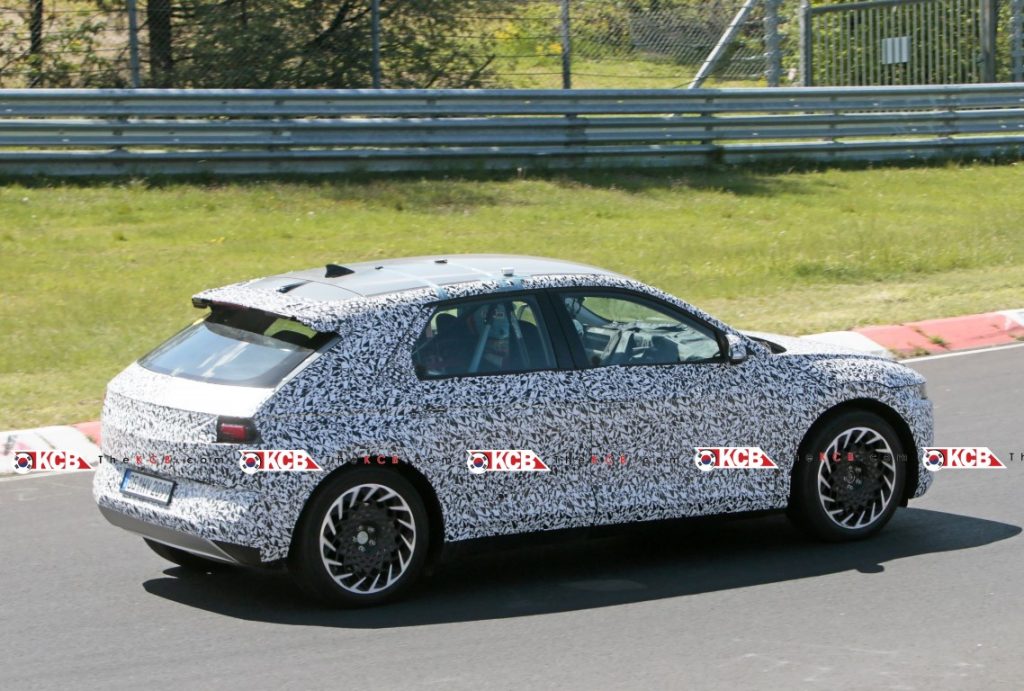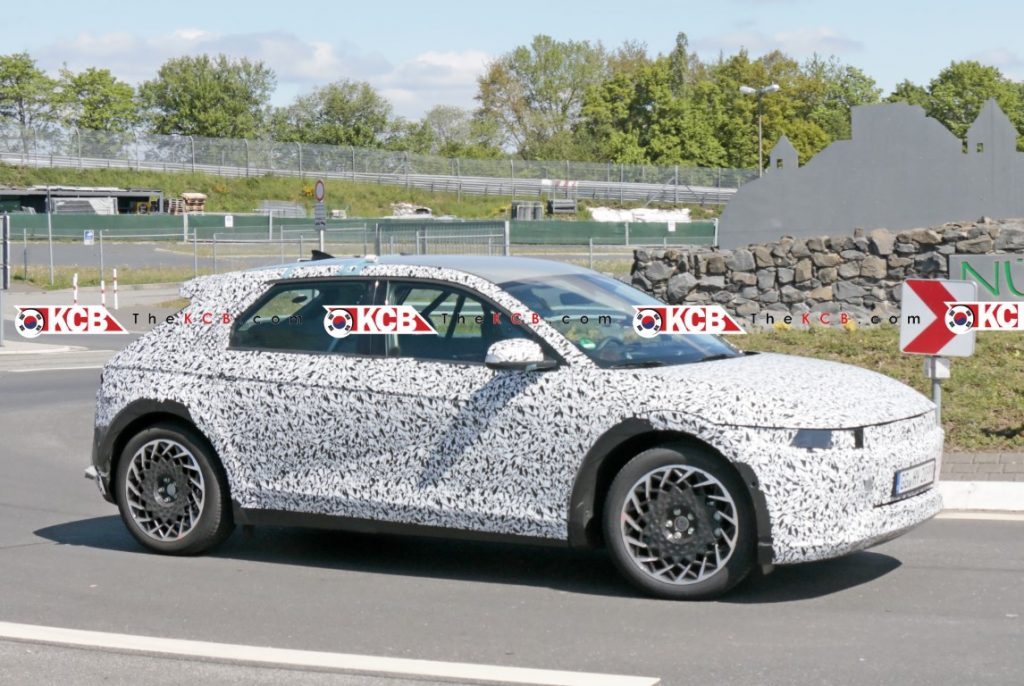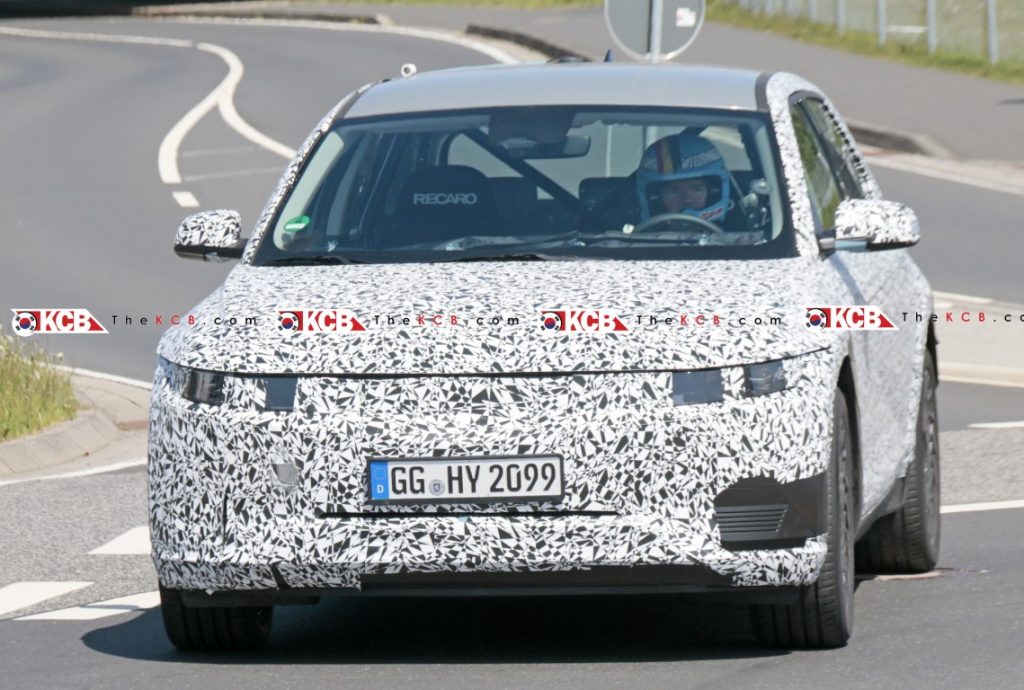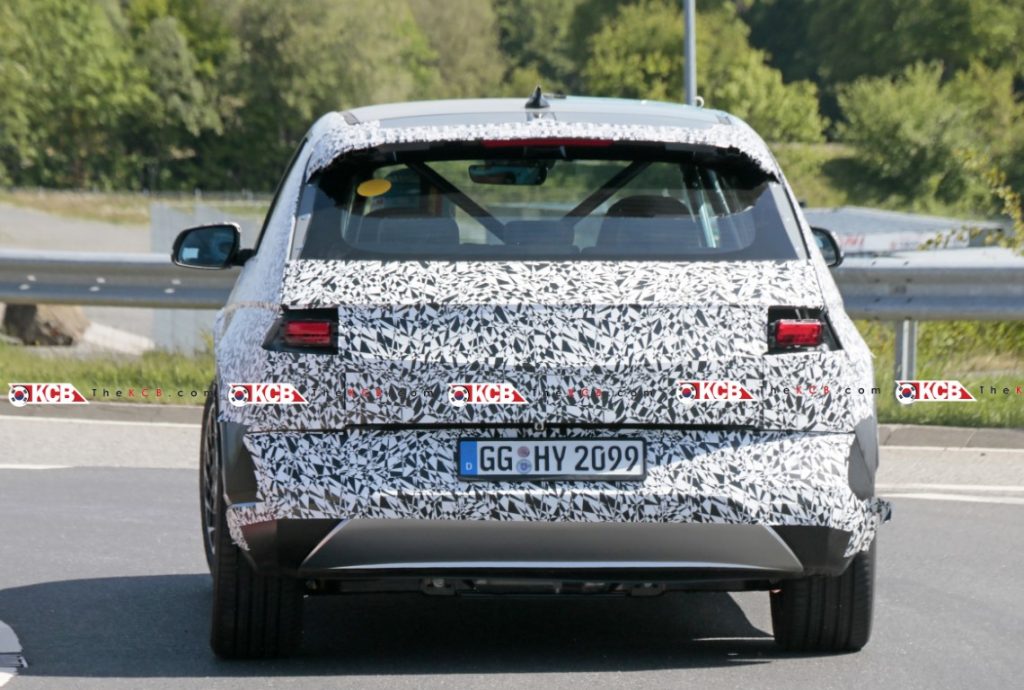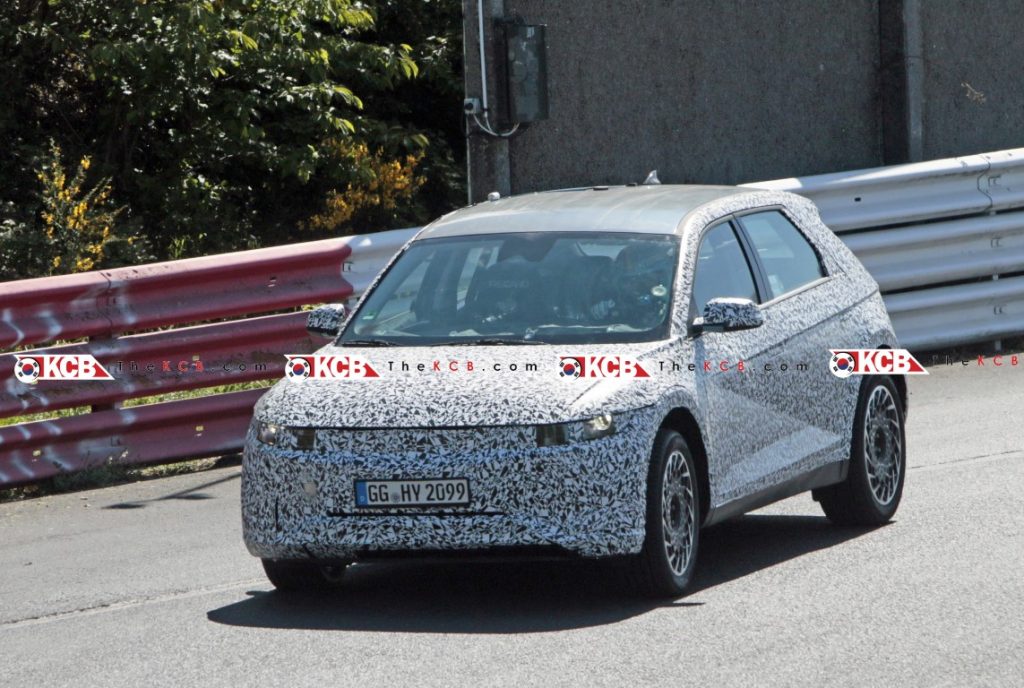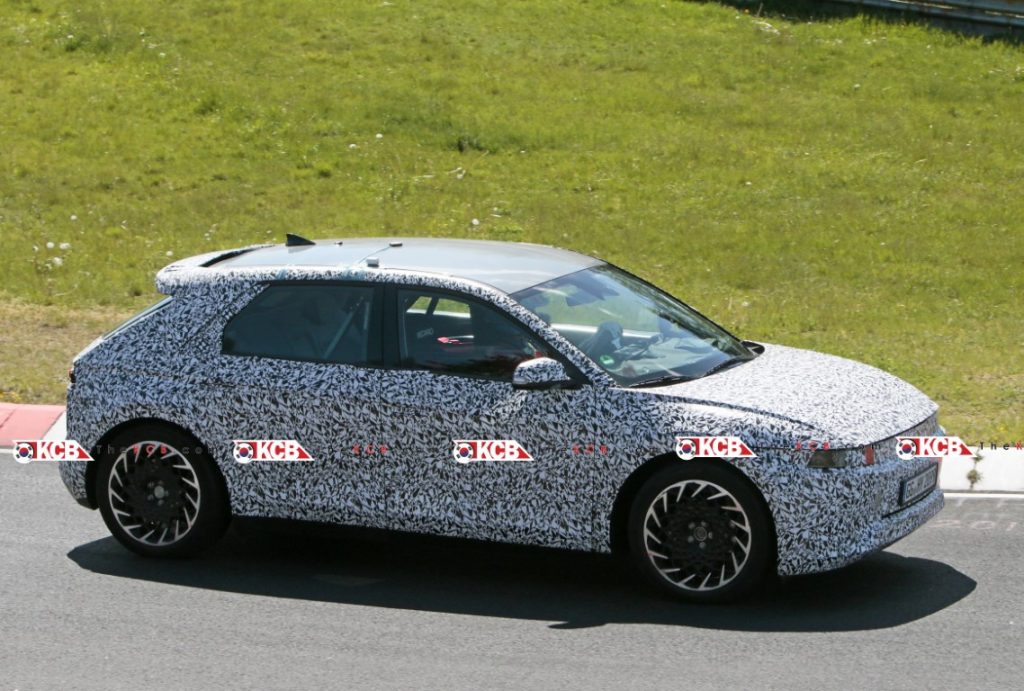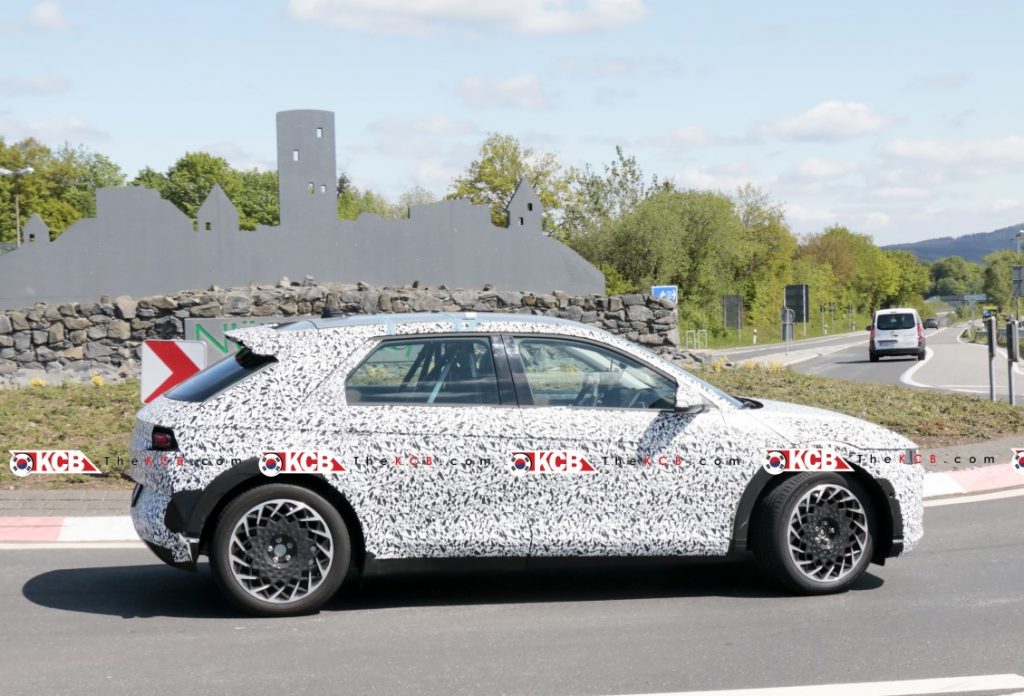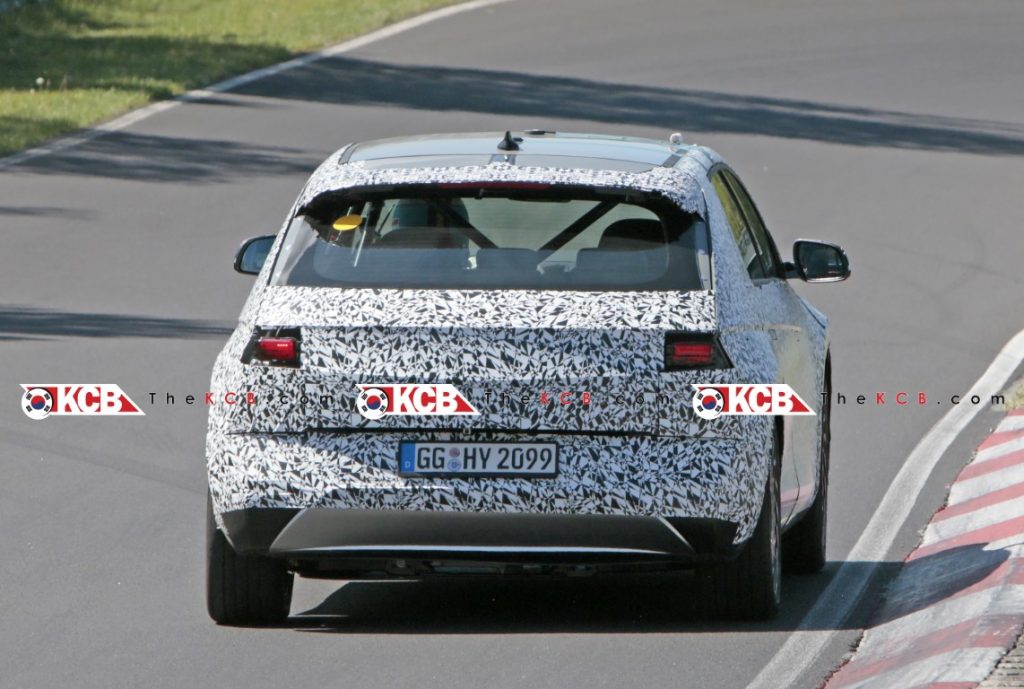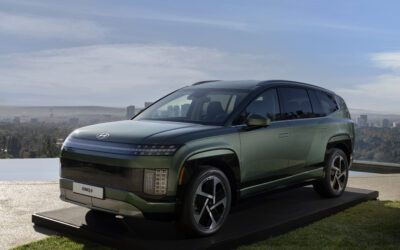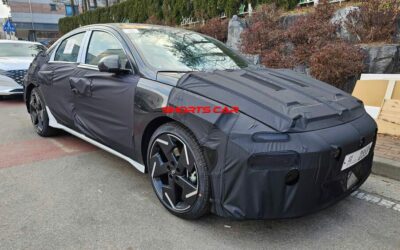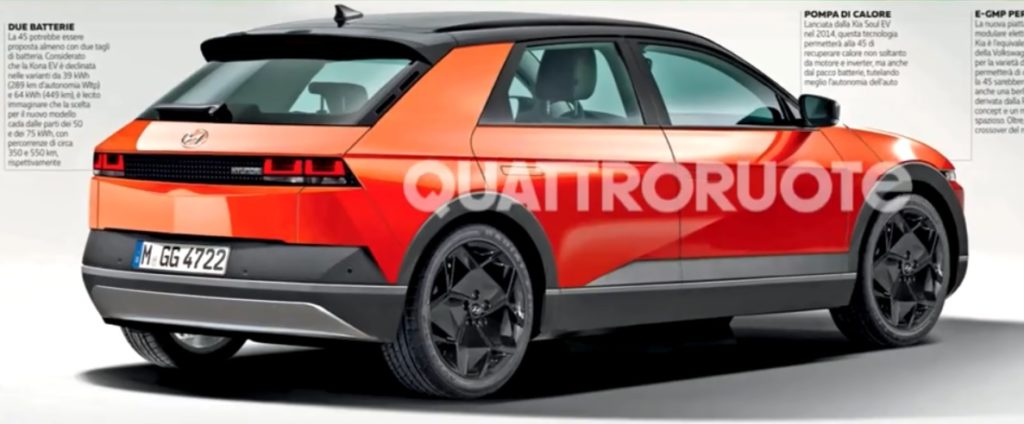
After we have seen many spy pictures including one set with less camouflage and the first sneak peek inside of Hyundai’s first EV of a new era of electric cars, the Hyundai 45 EV. Today we want to share with you this realistic rendering of the front and rear production version, courtesy of our friends at Quattroruote. What do you think?
[ads id=”9″]
What we know so far?
According to the report from AutoDaum, Hyundai Motor Company already changed the 2nd line of Ulsan Plant 1 to a dedicated line for electric cars. It plans to make 74,000 units next year, the first year of production, and 89,000 units in 2022. Specifications such as vehicle length were also confirmed.
According to the automobile industry on the 12th, Hyundai Motor recently released NE specifications and production plans to the union. NE is the first mass-produced vehicle that utilizes Hyundai’s electric vehicle dedicated platform (e-GMP). Hyundai has only released electric vehicles that have partially modified the skeleton of existing vehicles such as Kona and Ioniq. That is why NE is called Hyundai’s first next-generation electric vehicle.
NE is made in the form of a long, low-height coupe-type sports utility vehicle (CUV). The length of the body (length: 4635 mm) and the width of the body (width: 1890 mm) are similar to those of the midsize SUV Santa Fe. The vehicle body height (height) is 1605 mm, which is a small SUV Kona (1565 mm) class. It is observed that it will look similar to the coupe SUV, such as the BMW X4.
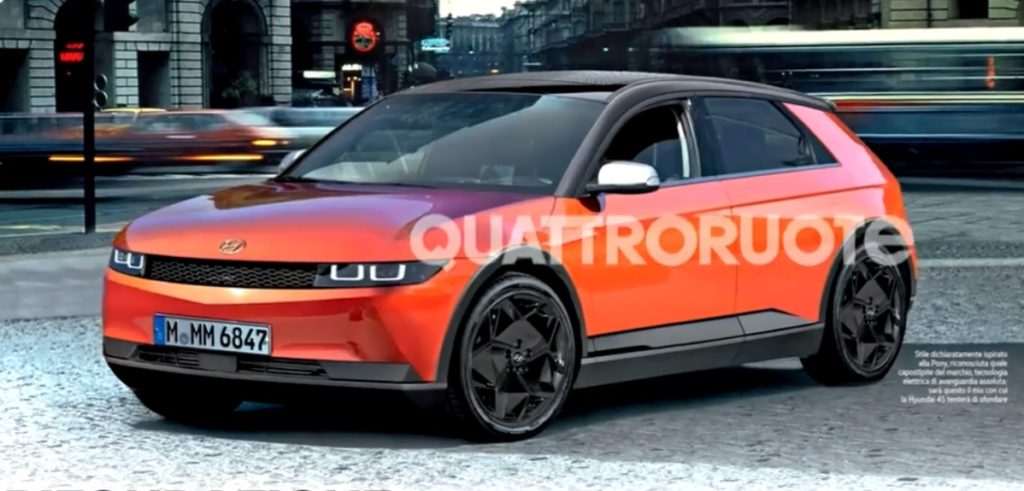
[ads id=”8″]
The design is dominated by the observation that Hyundai will resemble the concept car 45 unveiled at the Frankfurt Motor Show in Germany last September. The 45 is a reinterpretation of the Pony Coupe concept car presented at the 1974 Torino Motor Show. The wheelbase (the gap between the front and rear axles), which determines the size of the interior space, is 3000 mm, which is longer than the large SUV palisade (2900 mm). An industry insider explained, “If you use a platform dedicated to electric vehicles, the interior space is large because you do not need space to put engines, etc ..
The battery uses SK Innovation products. The basic type is equipped with 58㎾h, and the constant speed type is equipped with 73㎾h battery. After charging, they can drive 354㎞ and 450㎞ respectively. The constant-speed type has a longer mileage than Hyundai’s representative electric vehicle, the Kona EV (406km).
For the electric vehicle platform, the battery pack was placed flat on the lower part of the body. So far, Hyundai Motor has installed a battery pack under the rear seat of the electric car, but it has been mentioned as a disadvantage that the floor rises and the space for passengers in the rear seat is narrow.

[ads id=”8″]
Charging speed was also significantly shortened. With an ultra-fast charging station, you can charge 80% of the battery in 15 minutes. Currently it takes 40 minutes to charge quickly. It means that the charging time problem, which has been pointed out as the biggest weakness of electric vehicles, can be solved.
By the end of this year, Hyundai Motor Company plans to build 20 ultra-fast charging facilities and deploy 120 ultra-fast chargers. Hyundai will export the vehicle to Europe from January next year and release it to the domestic market in March. It will also enter the US in July next year.
Starting with NE, Hyundai Motor is offering various electric vehicle models. Currently, the number of electric vehicle models, which are 4 types (Kona, Ionic, Porter, and Lafesta for China) will be expanded to more than 16 types. So far, we have only made electric vehicles of some models, such as small SUVs and semi-mid-size sedans, but in the future, we plan to produce electric vehicles of the entire lineup from light to large vehicles. The electric car model of the luxury brand Genesis is also available.
[ads id=”8″]

